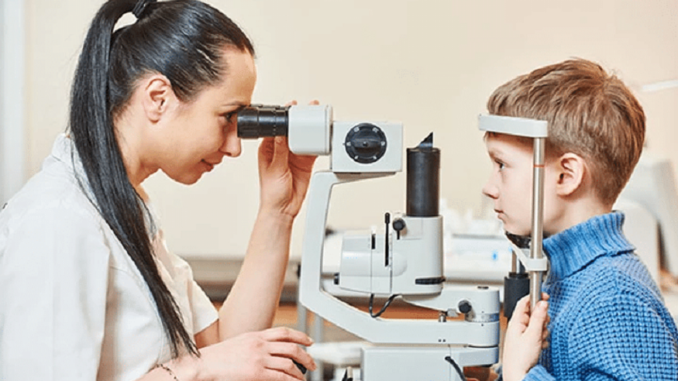
Regular eye exams are a critical component of good vision health. They can help detect vision problems early, diagnose diseases such as glaucoma and cataracts, and ensure that your eyes remain in good health as you age. It is important to have regular eye exams so that any changes in your vision can be detected and treated promptly.
In this article, we will discuss the importance of regular eye exams, what they involve, and how often you should get them in an eye care center in Jacksonville. We’ll also provide some tips for finding the right doctor for your needs. By understanding why it’s important to get an annual comprehensive eye exam, you can take control of your vision health and stay on top of any potential issues.
Why are Regular Eye Exams Important?
Regular eye exams are an important part of maintaining good vision health and can detect vision problems early. They can help diagnose diseases such as glaucoma, cataracts, and macular degeneration, allowing treatment to begin before the condition worsens. Early diagnosis is key to preventing permanent damage to your eyesight.
Additionally, regular eye exams allow your doctor to monitor any changes in your vision over time. This helps ensure that corrective lenses or surgery will be effective if needed. It is generally recommended that adults get a comprehensive eye exam every one or two years to maintain their vision health and make sure they receive the proper care for any issues that may arise.
What Does an Eye Exam Involve?
A comprehensive eye exam typically involves several tests designed to check your vision, assess the health of your eyes, and determine if you require any corrective lenses or surgery.
These tests may include visual acuity or refraction testing to measure the clarity and sharpness of your vision; a slit-lamp examination to look for signs of disease in the front portion of the eye; tonometry testing to measure intraocular pressure; dilation to examine retinal tissue; and a special test called Amsler Grid which can detect early signs of macular degeneration.
Based on those results, your doctor will be able to make recommendations regarding any treatments or corrective measures that may be necessary.
How Often Should I Have an Eye Exam?
The frequency of eye exams recommended for adults depends on age, risk factors for certain diseases, and the patient’s overall vision health. It is generally recommended that anyone between the ages of 18 and 60 have an eye exam once every two years.
However, if you are at a higher risk of vision problems due to a family history, diabetes, or other conditions, it is advisable to get an exam more frequently. For those over 60 years old, it is generally recommended to have an annual comprehensive eye exam. Your doctor can provide specific recommendations based on your individual circumstances and risk factors.
Tips for Finding the Right Doctor
When selecting an eye care provider, it is important to find a doctor who has experience in treating conditions similar to yours, and one who you are comfortable with and can trust. Ask family or friends for recommendations or look online for reviews of local doctors or optometrists.
You may also want to research any specialties that the doctor may have in order to determine if they are knowledgeable in treating your particular condition or issue. Additionally, make sure that you understand what types of vision tests will be included in the exam, as well as any costs associated with them so that there are no surprises
Conclusion
Regular eye exams are an important part of maintaining good vision health and can help detect potential problems before they worsen. It is generally recommended that adults get a comprehensive eye exam every one or two years, depending on age and risk factors for vision-related diseases.
An eye exam typically involves several tests to measure the clarity and sharpness of your vision, check for signs of disease in the front portion of the eye, measure intraocular pressure, examine retinal tissue, and look for early signs of macular degeneration. When looking for an eye care provider, make sure to find a doctor with experience in treating conditions similar to yours and one who you feel comfortable with.
Additionally, research any specialties that the doctor may have and understand what types of vision tests will be included in the exam and any associated costs. Taking these steps can help ensure that you receive the best quality care for your eyes.

Leave a Reply
You must be logged in to post a comment.